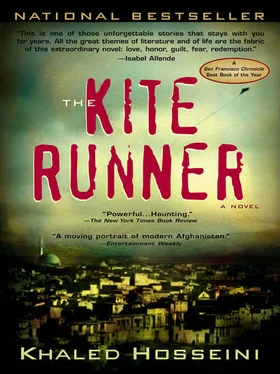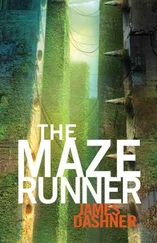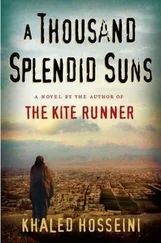“ Death certificates ? This is Afghanistan we’re talking about. Most people there don’t have birth certificates.”
His glassy eyes didn’t so much as blink. “I don’t make the laws, sir. Your outrage notwithstanding, you still need to prove the parents are deceased. The boy has to be declared a legal orphan.”
“But-”
“You wanted the long answer and I’m giving it to you. Your next problem is that you need the cooperation of the child’s country of origin. Now, that’s difficult under the best of circumstances, and, to quote you, this is Afghanistan we’re talking about. We don’t have an American embassy in Kabul. That makes things extremely complicated. Just about impossible.”
“What are you saying, that I should throw him back on the streets?” I said.
“I didn’t say that.”
“He was sexually abused,” I said, thinking of the bells around Sohrab’s ankles, the mascara on his eyes.
“I’m sorry to hear that,” Andrews’s mouth said. The way he was looking at me, though, we might as well have been talking about the weather. “But that is not going to make the INS issue this young fellow a visa.”
“What are you saying?”
“I’m saying that if you want to help, send money to a reputable relief organization. Volunteer at a refugee camp. But at this point in time, we strongly discourage U.S. citizens from attempting to adopt Afghan children.”
I got up. “Come on, Sohrab,” I said in Farsi. Sohrab slid next to me, rested his head on my hip. I remembered the Polaroid of him and Hassan standing that same way. “Can I ask you something, Mr. Andrews?”
“Yes.”
“Do you have children?”
For the first time, he blinked.
“Well, do you? It’s a simple question.”
He was silent.
“I thought so,” I said, taking Sohrab’s hand. “They ought to put someone in your chair who knows what it’s like to want a child.” I turned to go, Sohrab trailing me.
“Can I ask you a question?” Andrews called.
“Go ahead.”
“Have you promised this child you’ll take him with you?”
“What if I have?”
He shook his head. “It’s a dangerous business, making promises to kids.” He sighed and opened his desk drawer again. “You mean to pursue this?” he said, rummaging through papers.
“I mean to pursue this.”
He produced a business card. “Then I advise you to get a good immigration lawyer. Omar Faisal works here in Islamabad. You can tell him I sent you.”
I took the card from him. “Thanks,” I muttered.
“Good luck,” he said. As we exited the room, I glanced over my shoulder. Andrews was standing in a rectangle of sunlight, absently staring out the window, his hands turning the potted tomato plants toward the sun, petting them lovingly.
“TAKE CARE,” the secretary said as we passed her desk.
“Your boss could use some manners,” I said. I expected her to roll her eyes, maybe nod in that “I know, everybody says that,” kind of way. Instead, she lowered her voice. “Poor Ray. He hasn’t been the same since his daughter died.”
I raised an eyebrow.
“Suicide,” she whispered.
ON THE TAXI RIDE back to the hotel, Sohrab rested his head on the window, kept staring at the passing buildings, the rows of gum trees. His breath fogged the glass, cleared, fogged it again. I waited for him to ask me about the meeting but he didn’t.
ON THE OTHER SIDE of the closed bathroom door the water was running. Since the day we’d checked into the hotel, Sohrab took a long bath every night before bed. In Kabul, hot running water had been like fathers, a rare commodity. Now Sohrab spent almost an hour a night in the bath, soaking in the soapy water, scrubbing. Sitting on the edge of the bed, I called Soraya. I glanced at the thin line of light under the bathroom door. Do you feel clean yet, Sohrab ?
I passed on to Soraya what Raymond Andrews had told me. “So what do you think?” I said.
“We have to think he’s wrong.” She told me she had called a few adoption agencies that arranged international adoptions. She hadn’t yet found one that would consider doing an Afghan adoption, but she was still looking.
“How are your parents taking the news?”
“Madar is happy for us. You know how she feels about you, Amir, you can do no wrong in her eyes. Padar… well, as always, he’s a little harder to read. He’s not saying much.”
“And you? Are you happy?”
I heard her shifting the receiver to her other hand. “I think we’ll be good for your nephew, but maybe that little boy will be good for us too.”
“I was thinking the same thing.”
“I know it sounds crazy, but I find myself wondering what his favorite qurma will be, or his favorite subject in school. I picture myself helping him with homework…” She laughed. In the bathroom, the water had stopped running. I could hear Sohrab in there, shifting in the tub, spilling water over the sides.
“You’re going to be great,” I said.
“Oh, I almost forgot! I called Kaka Sharif.”
I remembered him reciting a poem at our nika from a scrap of hotel stationery paper. His son had held the Koran over our heads as Soraya and I had walked toward the stage, smiling at the flashing cameras. “What did he say?”
“Well, he’s going to stir the pot for us. He’ll call some of his INS buddies,” she said.
“That’s really great news,” I said. “I can’t wait for you to see Sohrab.”
“I can’t wait to see you,” she said.
I hung up smiling.
Sohrab emerged from the bathroom a few minutes later. He had barely said a dozen words since the meeting with Raymond Andrews and my attempts at conversation had only met with a nod or a monosyllabic reply. He climbed into bed, pulled the blanket to his chin. Within minutes, he was snoring.
I wiped a circle on the fogged-up mirror and shaved with one of the hotel’s old-fashioned razors, the type that opened and you slid the blade in. Then I took my own bath, lay there until the steaming hot water turned cold and my skin shriveled up. I lay there drifting, wondering, imagining…
OMAR FAISAL WAS CHUBBY, dark, had dimpled cheeks, black button eyes, and an affable, gap-toothed smile. His thinning gray hair was tied back in a ponytail. He wore a brown corduroy suit with leather elbow patches and carried a worn, overstuffed briefcase. The handle was missing, so he clutched the briefcase to his chest. He was the sort of fellow who started a lot of sentences with a laugh and an unnecessary apology, like I’m sorry, I’ll be there at five . Laugh. When I had called him, he had insisted on coming out to meet us. “I’m sorry, the cabbies in this town are sharks,” he said in perfect English, without a trace of an accent. “They smell a foreigner, they triple their fares.”
He pushed through the door, all smiles and apologies, wheezing a little and sweating. He wiped his brow with a handkerchief and opened his briefcase, rummaged in it for a notepad and apologized for the sheets of paper that spilled on the bed. Sitting cross-legged on his bed, Sohrab kept one eye on the muted television, the other on the harried lawyer. I had told him in the morning that Faisal would be coming and he had nodded, almost asked something, and had just gone on watching a show with talking animals.
“Here we are,” Faisal said, flipping open a yellow legal notepad. “I hope my children take after their mother when it comes to organization. I’m sorry, probably not the sort of thing you want to hear from your prospective lawyer, heh?” He laughed.
“Well, Raymond Andrews thinks highly of you.”
“Mr. Andrews. Yes, yes. Decent fellow. Actually, he rang me and told me about you.”
Читать дальше












